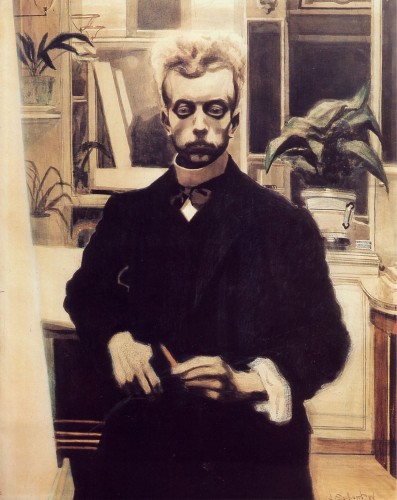A moving and deeply personal description of a very literary kind of transmedia storytelling can be found in the Readings section of this month’s Harper’s Magazine. Portuguese writer Fernando Pessoa “[wrote] and published in the guise of seventy-two different pseudonymous personae, for whom he invented detailed biographies…”; that is, Pessoa, like Cervantes and Twain and other masters of the unreliable narrator, created dense meta-narratives about the supposed authors of his texts that modulated and extended his original material by layering story upon story. The following excerpt should resonate with anyone dabbling in ARGs or other cross-platform layer-on-reality storytelling genres; it also seems rather apt as a general — and somewhat bittersweet — description of a certain kind of sublime.
Masquerades disclose the reality of souls. As long as no one sees who we are, we can tell the most intimate details of our life. I sometimes muse over this sketch of a story — about a man afflicted by one of those personal tragedies born of extreme shyness…who one day, while wearing a mask I don’t know where, told another mask all the most personal, most secret, most unthinkable things that could be told about his tragic and serene life. And since no outward detail would give him away, he having disguised even his voice, and since he didn’t take careful note of whoever had listened to him, he could enjoy the ample sensation of knowing that somewhere in the world there was someone who knew him as not even his closest friend did. When he walked down the street he would ask himself if this person, or that one, or that person over there might not be the one to whom he’d once, wearing a mask, told his most private life. Thus would be born in him a new interest in each person, since each person might be his only, unknown confidant. And his crowning glory would be if the whole of that sorrowful life he’d told were, from start to finish, absolutely false. (Harper’s)

